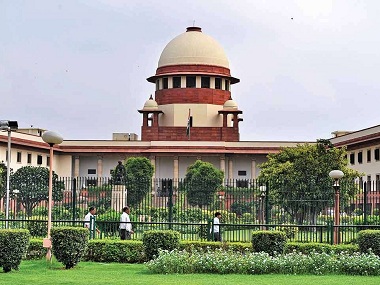The Supreme Court's judgment on Monday upholding the amendments made by the Centre through the Scheduled Castes and Scheduled Tribes (Prevention of Atrocities) Amendment Act, 2018, is a welcome act of self-correction. The amendments were introduced by the Union government to nullify the effects of the 20 March, 2018 judgment of the top court, which had severely diluted the stringent provisions of the Act. Essentially, the Supreme Court’s recent judgment gives judicial assent to the amended law passed by the Centre in 2018. Here is a broad overview of the earlier judgment of the Supreme Court and why it was overturned: The apex court’s verdict of March 2018 would have rendered crucial legislation meant to protect the marginalised sections of society toothless. There were three broad directions given through the judgment. Firstly, it held that there is no absolute bar against granting anticipatory bail in such cases. Secondly, it directed that if a public servant is to be arrested in such a case, the approval of the appointing authority must be taken. For non-public servants, the court had said that approval should be sought from the senior superintendent of police. Thirdly, the court also said that a preliminary inquiry should be conducted by a deputy superintendent of police to find out whether a case is made under the Atrocities Act, and examine whether the allegations are motivated. [caption id=“attachment_6604251” align=“alignleft” width=“380”]  File image of Supreme Court of India. Reuters[/caption] The Supreme Court had then said, “It has been judicially acknowledged that there are instances of abuse of the Act” and that “innocent citizens are termed as accused, which is not intended by the legislature.” While the court had cited five high court judgments to make this assertion, it cited very little data to support such a claim. Data from the National Crime Records Bureau (NCRB) was cited, which showed that in 2015, over 75 percent of matters in courts ended either in acquittal, withdrawal or compounding of cases. However, it is important to note that a case ending in acquittal does not necessarily mean that the case was filed out of malicious intent — acquittal may also be due to witnesses turning hostile, technical anomalies, or the prosecution not being able to marshal enough evidence. This was revealed in a report by the Ahmedabad-based Council for Social Justice, which analysed 450 judgments delivered in Gujarat. The report showed that as many as 95 percent of the accused were acquitted due to technical reasons — investigations being carried out by an officer lower than the rank of deputy superintendent of police, or a caste certificate not being attached with the FIR. After the Supreme Court’s 2018 judgment, PS Krishnan, former Union Secretary and prominent activist for social justice, had written to the Union Minister for Social Justice Thaawar Chand Gehlot on the issue. As mentioned in an article in The Wire, Krishnan had cited many examples of how a case ending in acquittal does not mean that it was false. Perhaps the most glaring case of these was in Kizhavenmani, Tamil Nadu in 1958. In this case, 44 agricultural labourers of the Scheduled Caste community were burned to death for demanding a small raise in their wages. The high court had acquitted all the accused. While we are on the subject of data, the annual reports of the Union social justice ministry on the implementation of the Atrocities Act are also instructive. Under the Act, state governments are supposed to set up special exclusive courts “for one or more districts” to ensure speedy trials. However, according to the 2017 annual report, Andhra Pradesh has set up only one such court, although it has 13 districts. The state recorded 2,740 cases under the Act in 2016. Similarly, Bihar has only five exclusive special courts for 38 districts, although the state recorded 5,726 cases under the Act in 2016. Clearly, a severe lack of infrastructure hampers the implementation of the Atrocities Act. In the Supreme Court’s recent judgment upholding the Centre’s amendments, Justice S Ravindra Bhat has rightly observed, “It is important to keep oneself reminded that while sometimes (perhaps mostly in urban areas) false accusations are made, those are not necessarily reflective of the prevailing and widespread social prejudices against members of these oppressed classes…The right to a trial with all attendant safeguards are available (sic) to those accused of committing offences under the Act; they remain unchanged by the enactment of the amendment.” In essence, the Supreme Court’s 2018 judgment on the Atrocities Act had severely diluted the provisions of the law, to the point where it may no longer have been able to achieve its objective of protecting the marginalised sections of society. The apex court’s more recent judgment restores the original intent of the law and is a welcome one.
The apex court’s verdict of March 2018 on the Atrocities Act would have rendered a crucial legislation meant to protect the marginalised sections of society toothless.
Advertisement
End of Article


)

)
)
)
)
)
)
)
)



